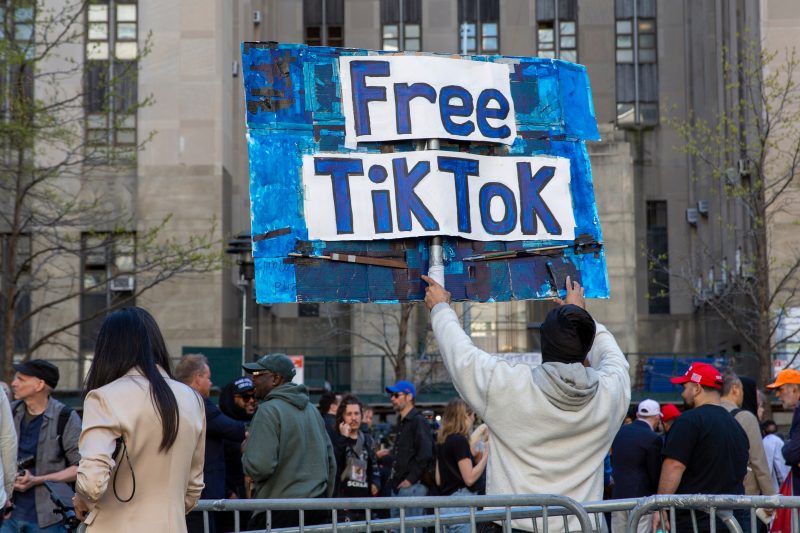In a surprising turn of events, former President Donald Trump has made a significant reversal in his stance on the popular social media platform, TikTok. Known for his vocal criticism of the app during his time in office, Trump’s recent accusations towards President Joe Biden of wanting to ban TikTok have caught many by surprise.
Trump’s public criticism of TikTok began during his presidency, as he raised concerns over the platform’s data privacy and security issues, especially due to its Chinese ownership. This ultimately led to an executive order by Trump in 2020, demanding that TikTok be sold to an American company or face a ban in the United States.
However, Trump’s recent accusations directed at President Biden suggest a shift in his perspective. Trump now claims that Biden is keen on banning TikTok, contradicting his previous strong stance against the platform. This sudden change in narrative has sparked speculation and raised questions about the motivations behind Trump’s about-face on the issue.
One possible explanation for Trump’s reversal could be linked to his ongoing feud with President Biden. By accusing Biden of wanting to ban TikTok, Trump may be attempting to undermine the current administration’s credibility or divert attention from other pressing matters. Alternatively, it could be a strategic move to align himself with popular sentiment, as TikTok has gained massive popularity among younger demographics.
The controversy surrounding TikTok and its potential ban in the United States has been a recurring topic of debate among policymakers and the public. While concerns over data security remain valid, the platform’s cultural impact and user engagement cannot be overlooked. TikTok has become a significant source of entertainment and social interaction for millions of users worldwide, making it a valuable asset in the digital age.
As the situation continues to unfold, it remains to be seen how President Biden will address the issue of TikTok and whether any decisive actions will be taken. Trump’s latest accusations have added a new layer of complexity to the ongoing debate, highlighting the intersection of politics, technology, and national security concerns in the modern era.
In conclusion, Trump’s reversal on TikTok and his accusations towards President Biden have reignited the debate over the popular social media platform’s future in the United States. The evolving dynamics surrounding TikTok reflect broader discussions around data privacy, national security, and political agendas, underscoring the complexities of managing digital platforms in an increasingly interconnected world. It remains to be seen how this controversy will be resolved and what implications it may have for the future of social media regulation.
